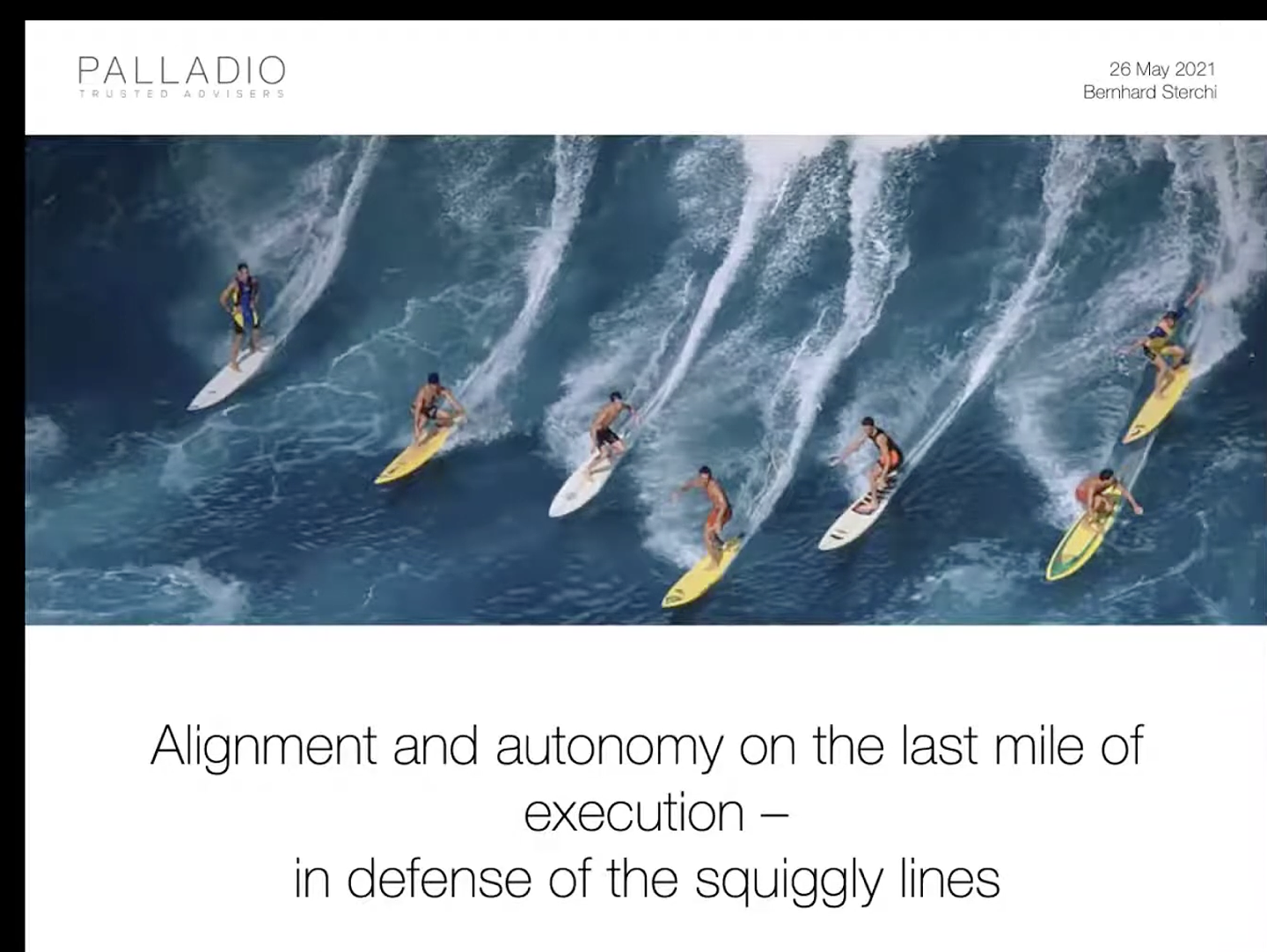
The VSM is rarely applied at a level of behaviour in specific situations – what is done, what is said, how it is framed. What is missing in incomplete contracts, the last mile of execution where the usual tools of organising do not apply. This preference in focus is mirrored in the fact that many representations of the VSM omit the squiggly lines between various S1 operations. And yet, at this very level we experience the same tension between performance – the horizontal force – focused on contextuality, adaptability, and therefore on a certain autonomy of execution, and cohesion – the vertical force – focused on standards, co-ordination, and alignment.
This talk explores the means of influencing this last mile, and scaffolding for alignment, without decreasing the necessary level of autonomy. It draws examples from the Ritz Carlton and Zara.
Speaker Bio

An historical anthropologist by training, Dr. Bernhard Sterchi supports leaders in improving their effectiveness in complex and dynamic contexts, as trainer, consultant, and coach. Based on a systems-oriented management approach, he has for this purpose developed a series of tools, notably for the alignment of leadership approaches in teams and for their effective communication within the organisation, for the analysis and transformation of the corporate mindset, and for the practice- and peer consulting oriented development of leaders. He has developed and delivered specific training concepts for agile and complexity-oriented leadership. He is founder and managing partner of Palladio Trusted Advisers, the author of Oblique Strategies for Leaders, and of The Leader’s Fairytales.
